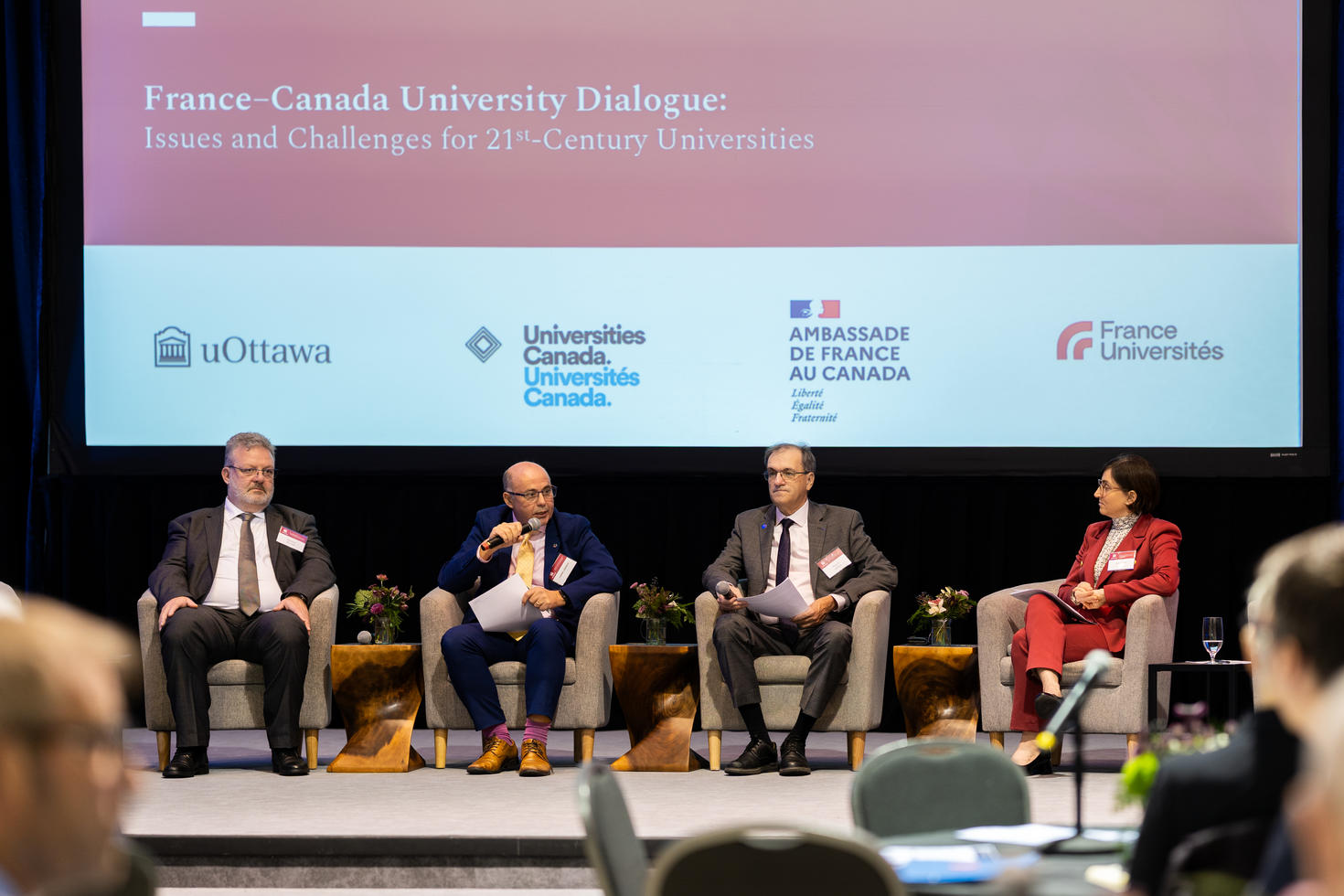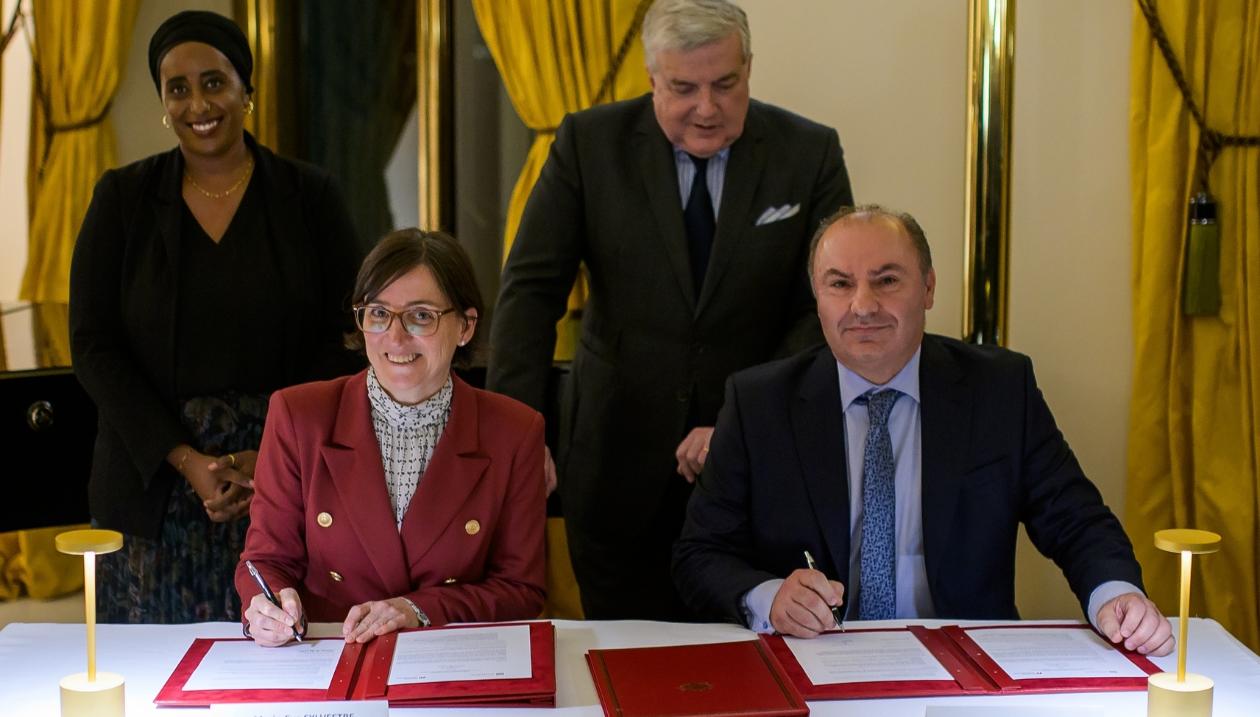The two partners signed a letter of intent following a day of productive exchanges during which representatives from over 25 Canadian and French universities met on the main campus of the University of Ottawa for an event titled France–Canada University Dialogue: Issues and Challenges for 21st-Century Universities.
The France-Canada campus will be an entry point for French and Canadian institutions wishing to strengthen their joint initiatives.
“As a bilingual university located in the heart of Canada’s capital, the University of Ottawa has always maintained a special connection with France,” said Marie-Eve Sylvestre, University of Ottawa president and vice-chancellor. “Today, we wish to go even further, by encouraging cross-cutting collaborations between teaching and research institutions — in both Canada and France. The France-Canada campus furthers this goal by offering a structured space to create new projects together, amplify our collective impact and advance our scholarly leadership.”

“Today, we wish to go even further, by encouraging cross-cutting collaborations between teaching and research institutions — in both Canada and France.”
Marie-Eve Sylvestre
— University of Ottawa president and vice-chancellor
Universities key to major transitions
During the France–Canada University Dialogue, leaders of French and Canadian universities, as well as other actors in the milieu meeting in Ottawa, came to a shared conclusion: universities are being called upon to play a front-line role in addressing issues raised by technological, environmental and social change worldwide. Whether discussing decarbonization of industry, science sovereignty or promotion of science and knowledge, the exchanges shed light on the power of collaboration between researchers and society and the impact of their role within different communities.
As Lamri Adoui, president of France Universités, noted, the France-Canada campus isn’t starting from scratch. It builds on many well-established collaborations between the two countries’ institutions — joint programs, research chairs, international projects and institutional partnerships — that underpin this new step.

The campus will thus ensure continuity of initiatives and research and support exchanges between disciplines, while strengthening scholarship in the French speaking world in a constantly changing global environment.
Ensuring durable research and co-operation
The future France-Canada campus will be an instrument for science diplomacybetween universities in the two countries, a place where researchers will be able to co-construct knowledge and solutions that transcend political boundaries. It will serve as an academic and scientific incubator to facilitate the development of joint programs and encourage student mobility.
In joining forces, Canadian and French universities are also affirming their desire to defend scientific truth, academic freedom and research durability beyond any ideological differences.
For Sahra Ali, Universities Canada chief financial officer, the France-Canada campus must become “a lasting space for inclusive collaboration, where innovation and research serve the common good.”
Michel Miraillet, French ambassador to Canada, mentioned the “trust, shared commitment and collective impact” that characterize this transatlantic academic relationship.
In the coming months, discussions and working groups will be organized to define, along with the partner universities, the campus’s concrete direction and the collaboration mechanisms to ensure its sustainability. Inclusive by nature, the campus will welcome all Canadian and French universities wishing to participate in this collective movement.
The University of Ottawa, which has a long history of partnering with France in the field of higher education and research, has managed the France-Canada Research Fund (FCRF) for the past 25 years. This fund is the main bilateral support program for joint research projects. The University also manages the in2novation platform in Canada and hosts the offices of the French National Centre for Scientific Research in Canada, all of which speaks to its long-standing commitment to scholarly co-operation between France and Canada.
